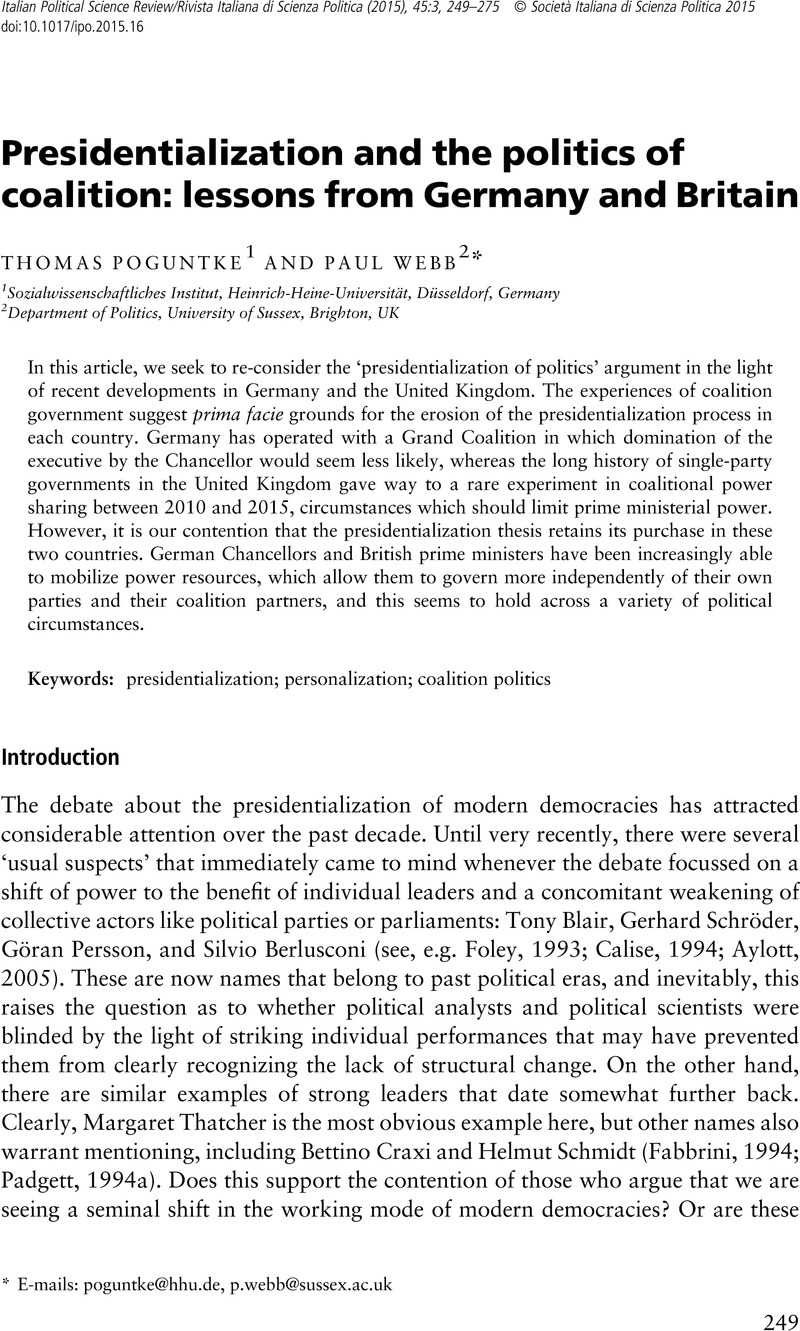Crossref Citations
This article has been cited by the following publications. This list is generated based on data provided by Crossref.
Calise, Mauro
2015.
The personal party: an analytical framework.
Italian Political Science Review/Rivista Italiana di Scienza Politica,
Vol. 45,
Issue. 3,
p.
301.
Martocchia Diodati, Nicola
Marino, Bruno
and
Carlotti, Benedetta
2018.
Prime Ministers unchained? Explaining Prime Minister Policy Autonomy in coalition governments.
European Political Science Review,
Vol. 10,
Issue. 4,
p.
515.
Musella, Fortunato
2018.
Political Leaders Beyond Party Politics.
p.
65.
Ridge-Newman, Anthony
2019.
Political Communication in Britain.
p.
131.
Carbone, Giovanni
and
Pellegata, Alessandro
2020.
Political Leadership in Africa.
Bennister, Mark
and
Worthy, Ben
2024.
The ‘electoral presidentialization’ of Silvio Berlusconi and Boris Johnson: Chaos, controversy, and lost chances.
The British Journal of Politics and International Relations,
Vol. 26,
Issue. 4,
p.
1231.
Helms, Ludger
2024.
Mythos „Kanzlerdemokratie“.
Zeitschrift für Vergleichende Politikwissenschaft,



